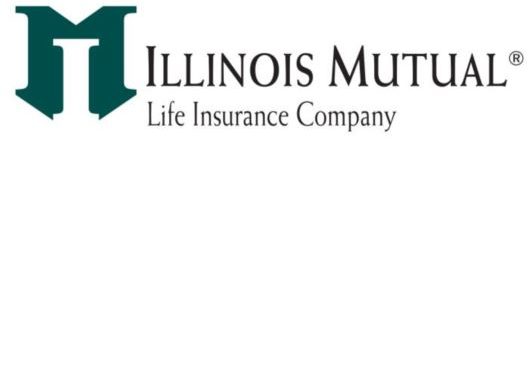Illinois Mutual is one of the best disability insurance policies that can cater to several people, including those who are self-employed with a blue-collar occupation. These products are reviewed to inform the public about the various options within the income protection universe. Most disability policies are very good, but what is right for you may not be right for someone else. As an expert, objective, and independent disability insurance agency, we can help you navigate the sea of carriers and their individual product features. Contact us today to schedule a complimentary and informative consultation.
Who Is Illinois Mutual?
First founded in 1910 as the Illinois Woodman Accident Association, Illinois Mutual can trace its industry roots back over 100 years.
After a handful of name changes, in 1995 the company was rebranded as Illinois Mutual Life Insurance Company, the name under which it currently uses to markets its products.
The headquartered are located in Peoria, Illinois. Illinois Mutual has a robust suite of life insurance products, including:
-Term life insurance,
-Return of premium (ROP) term life insurance
-Universal life insurance
-Whole life insurance
However, what really sets Illinois Mutual apart from its competitors is its abundance of disability insurance products and options, which we’ll discuss in further detail later in this article.
Illinois Mutual Financials
Illinois Mutual is rated A- (Excellent) by A.M. Best, and holds their fourth highest rating. Their annual financial report from the year ending in 2017 demonstrated over 1.4 billion in total assets and over 225 million in surplus (assets minus liabilities).
If you’d like to learn more about Illinois Mutual, feel free to contact us, and we can send (email) you additional information.
Products Offered
As mentioned earlier, Illinois Mutual has a relatively extensive lineup of life insurance products and covers most of the basics (such as term and ROP term for income protection, and universal and whole life for final expenses and estate preservation).
However, this is a disability insurance website, and we review income protection products, so how does Illinois Mutual stack up in that department?
The answer is: very well.
For White-Collar Workers
If you asked Illinois Mutual about their target market, white-collar professionals might not be at the top of the list. Nonetheless, they do have some features on their disability insurance products that are very attractive to that demographic.
Firstly, like many carriers, they offer own occupation coverage.
Their base policy is a type of modified own occupation which has two years of own occupation definitions and then transitions to any occupation definition of disability.
While this isn’t ordinarily attractive for white-collar workers, who in theory are trained to do multiple tasks and have the ability to play different roles within an organization, Illinois Mutual has two additional options to augment their definitions:
Option 1: An Own Occupation Extension Rider
This is a rider purchased on a disability insurance policy that extends the own occupation period from 24 months to a longer period of time, such as 5 years or even all of the way to age 67.
Option 2: Pure Own Occupation Rider (h3/bold)
Whether you opt for the base definitions of disability (24 months of own occ, the rest of the benefit period at any occ) or add on the own occupation extension rider to push the own occ definition to 5 years and beyond, you’re still not allowed to work while on a claim with Illinois Mutual.
This option is known as “own occ not otherwise engaged,” and it means that you are disabled and you can’t do your job or any similar job roles, so you are therefore on a claim. While you are on a claim, you’re not allowed to work in any other occupation for wage or profit.
For ExampleLet’s say that you’re a successful software developer who is writing code for most of the day. You develop a debilitating form of arthritis that prevents you from being able to work for extended periods of time and because of that, lose hours, duties and income from work. You claim on your disability insurance. With a “not engaged” definition of disability, you can stay on the claim, but you will be restricted from doing anything else, such as teach coding at your local university, even though you may be physically and mentally able to do so.
The “pure own occupation rider” is an optional feature from Illinois Mutual that is available to many white-collar professions.
Just like Guardian, Ohio National, and the Standard, this rider allows the owner/insured of an Illinois Mutual policy to have exact own occupation coverage, meaning that they can work any other job (other than their own) while disabled and remain on claim.
The two downsides to this option are the costs and limitations.
As this option is a rider, it does cost extra. However, unlike the carriers mentioned earlier this feature is for the life of the benefit length, Illinois Mutual maxes out at 5 years for this additional protection.
The other area where we have seen success with white collar professionals opting for Illinois Mutual over more traditional carriers is because of the ROP DI.
Return of Premium Disability Insurance
ROP DI or return of premium disability insurance is much more expensive than traditional DI.
You might ask, “Is it because of better definitions? A larger benefit? More riders?”
The single answer to all three questions is: NO.
Return of premium term is an attractive option because at the end of the guaranteed renewable period (age 67) when you would typically drop your policy, the company will return all of your premiums.
That sounds like a great deal. However, any ROP insurance policy (term, disability, long-term care, etc.) is going to cost a lot more than a policy that does not refund your premiums.
For ExampleYou’re a white collar professional making 100k/annually. A DI policy for your occupation may cost $144/mo (male non-tobacco age 30 class 5). If you were to add the return of premium feature, your policy cost would increase to almost 200/mo, which is an increase of 38%. The upside is that if no benefits are paid, and no changes are made to the policy, the owner/insured will receive a cheque for $84,055.49 at age 67.
While the return of premium may be expensive, some people like the fact that these policies aren’t “use it or lose it.”
As you can see, there are some places where Illinois Mutual can fit perfectly with the white collar worker. If you’d like to see a quote from them in regards to your occupation, please let us know by completing the form on the left and write “Illinois Mutual” in the comments.
For Blue Collar Workers
Illinois Mutual is an excellent disability insurance policy for blue collar workers.
From their accident and retroactive injury riders to allowing for policies that integrate with social services, they make a policy that is both affordable and will provide blue-collar worker population with adequate protection.
The two biggest strengths are their occupation classes and their social insurance supplement rider which they refer to as their “integrated monthly benefit rider” or “IBR.”
Illinois Mutual Occupation Classes
It is just like all disability insurance carriers, one of the main influencers on top of the price of your income protection (disability) policy is your occupation class. The higher your occupation class, the lower your premium will be. They typically range from letters such as B or A up to classes 5 or 6 (depending on the carrier.).
Illinois Mutual has very favorable terms for various occupations. That means that with some companies, you may be viewed at a very low class or even uninsurable one, whereas with Illinois Mutual you can purchase coverage for a very reasonable cost.
For ExampleA profession such as a tugboat captain is typically deemed as uninsurable by some of the big name disability insurance companies. That means that even if you were open to paying as much as possible in premiums, you wouldn’t be allowed to apply in the first place. Illinois Mutual classes tugboat captains as class 2. So, while it isn’t the highest class, it is certainly better than being told not to apply which is what happens with many of the other carriers.
If you’re having trouble getting income protection coverage from some of the more recognizable names, Illinois Mutual may be the right fit for you.
The IBR Rider
A key feature for any blue-collar disability insurance plan is a social insurance supplement (SIS) rider.
An SIS rider can help make your policy less expensive while still covering your basic income needs. These riders break up your total benefit amount into a base and the rider.
The base is payable no matter what (once your claim is approved and the waiting period is satisfied). The rider portion is payable only if you are not receiving any other social assistance, for example, social security disability.
Illinois mutual’s SIS rider, called their integrated monthly benefit rider, as it has traits similar to others in the industry.
The combination of competitive occupation classes for blue-collar workers and a rider that can reduce your overall costs make Illinois Mutual very competitive for this market.
For Business Owners
Illinois Mutual has several attractive programs for business owners and those who are self-employed, most notably, their occupation upgrade program and their BOE policy.
Self-Employed Upgrades
Business owners, especially those with higher classes to begin with (2 or 3) can benefit significantly from using Illinois Mutual.
For those looking for self-employed income protection, they offer what is called an occupational upgrade.
That means that an occupation class 2 is for those who are self-employed can be bumped up to a 3, subject to some very basic criteria (like working full time). This upgrade lowers the total cost of the policy, sometimes quite substantially.
If you have a class 3 occupation, there is a 2 class upgrade available.
For instance, a child care provider is normally a class 3 occupation. Should that person have ownership of a daycare center, even out of his or her home, they could be upgraded to a class 5 (the highest) occupation class.
Business Overhead Expense (BOE)
A critical policy for any business which is over with ongoing monthly expenses, BOE can help pay salaries, rent, and other costs should you become disabled.
Several companies offer BOE policies, but Illinois Mutual makes it easy to apply for both simultaneously and is competitively priced.
Illinois Mutual Pros
As mentioned earlier, Illinois Mutual is a very competitive carrier, primarily when used in the right niches.
They can accommodate all kinds of workers, but we find them especially compelling for those who are self-employed in a blue/gray collar job. That doesn’t mean that other professions can’t view them as useful, especially if you’re considering a return of premium disability insurance policy.
Illinois Mutual Cons
If you’re looking for a household name, they’re probably not your best option. Guardian, Principal, and others are all still available through this agency if that’s an important factor for you.
Their website and eApp could use a facelift, but that is mainly our problem, not yours. Sometimes underwriting can take a little longer than expected but that is true for many companies.
In Summary
Overall, Illinois Mutual is an excellent option for disability insurance, regardless of your occupation.
Keep in mind that no one carrier is best for everyone. The best disability insurance policy is the one that you can afford, as well as providing you with the benefits that you need, and are enforced when you go on a claim.
We represent all of the major disability insurance carriers in the brokerage industry and have the ability to shop your policy for the best fit.
Call us at 888-636-2310 or complete the quote form on the left for a complimentary consultation. We’re here to help.


